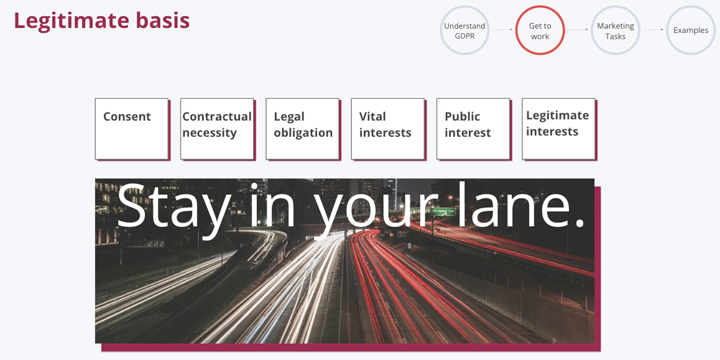The General Data Protection Regulation (GDPR) has generated a lot of buzz and speculation, with many areas of the legislation based on striking a balance between a consumer’s right to privacy and a company’s need to breach privacy. Unfortunately, the lack of clear-cut rules has resulted in numerous myths and assumptions. However, it is possible to distinguish myths from truths by following a few steps, and downloading a myth-busting ebook.
In 2018, the General Data Protection Regulation (GDPR) came into effect, imposing stricter rules on how companies collect, process, and store personal data of individuals within the European Union (EU). While it has been several years since its implementation, the GDPR is still a crucial piece of legislation that affects businesses operating in the EU and those outside of it that handle EU citizens' data. With the rapid advancements in technology and data collection methods, it is essential to keep up to date with the GDPR's latest interpretations and applications. In this context, this blog provides valuable insights into GDPR terminologies, plain English explanations, and ways to differentiate between GDPR myths and truths. By following the steps outlined in this blog, businesses can ensure GDPR compliance, avoid penalties, and maintain consumer trust in their handling of personal data.
Tired of complicated language and myths? Download my free GDPR Myth Busting ebook now.
In 2023, GDPR compliance remains essential for commercial teams to protect consumers' privacy rights, avoid hefty penalties, and maintain customer trust. With increased public awareness of data breaches and privacy violations, consumers expect businesses to take responsibility for their data handling practices. Non-compliance with GDPR can result in significant financial consequences, with fines ranging up to 4% of a company's global annual revenue. Furthermore, data breaches and privacy violations can damage a company's reputation and customer loyalty. By prioritizing GDPR compliance, commercial teams can build customer trust, ensure business continuity, and avoid costly legal and reputational damages.
Firstly, understanding the terminology used in the GDPR is crucial to understanding a business's responsibility when it comes to implementing the GDPR. For instance, understanding the difference between a data controller and a data processor, and who is considered a data subject and what personal data entails is vital. Therefore, it is recommended to access a glossary of terms to clarify the meaning of terminologies.
Secondly, it's essential to search for plain English explanations wherever possible. A genuine understanding of the GDPR means being able to explain it in straightforward language. There are several myth-busting eBooks and good and bad examples of privacy notices available to help navigate the legislation. Additionally, local Data Protection Authorities (DPAs) are available to assist businesses with compliance queries.
Thirdly, reading the legal text is unavoidable when attempting to debunk GDPR myths. Understanding which paragraphs of the legislation contain specific information is vital to efficiently locating answers without endlessly combing through paragraphs. Intersoft Consulting offers an organized overview of the regulation that can be utilized to locate applicable sections quickly. Having a solid grasp of GDPR terminology makes reading and interpreting the legal text more manageable.
Finally, knowing how to take action is essential. Once the GDPR is understood, it becomes simpler to explain the legislation in plain English, read the legal text, and take action to become compliant. Marketing and sales teams must be compliant to continue processing data and generate leads, perform email marketing, reach out to customers for upsells, and more.
Fortunately, certified privacy professionals and inbound marketers have gone through the same learning process and created a myth-busting eBook. It debunks the top ten myths, explains GDPR terminology, provides plain English explanations, backs it up with legal text, and offers steps to take next. For instance, it covers myths around locality, consent, privacy notices, cloud service providers, and more. If you have a myth or question that wasn't covered, you can leave a comment below.






